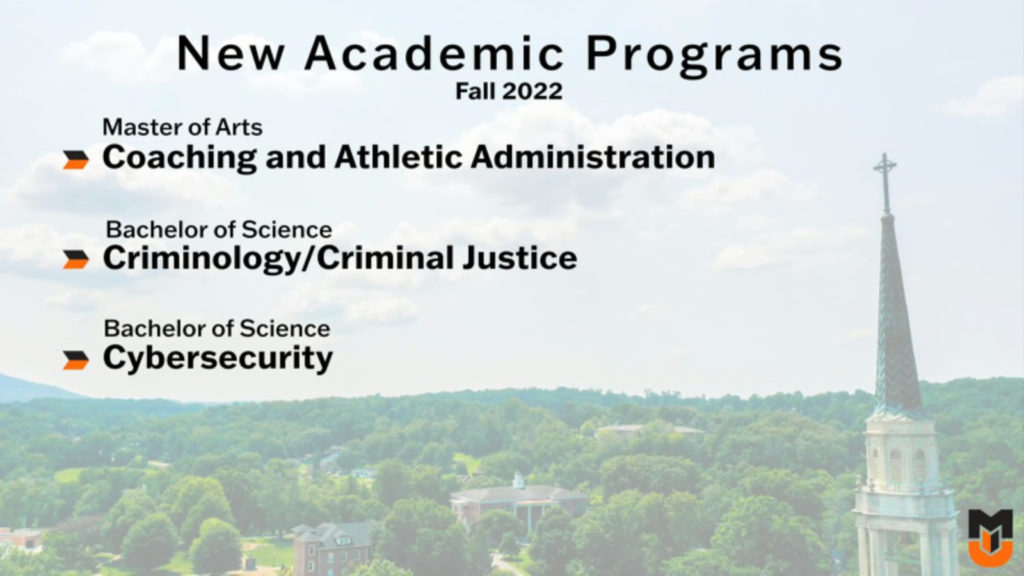This is the first in a series of articles examining Milligan University’s plans for the future. The series will explore plans for development and advancement in academics, student life, business and finance, institutional advancement, and enrollment. This article addresses future plans for academics.
Milligan University has added new academic programs, and faculty and announced a land purchase in the last year, so it’s no surprise that change is on the horizon. Milligan currently offers 38 undergraduate majors, 10 master’s programs, and three doctorate degrees and employs 99 academic faculty.
Among the first changes to come, the university announced the addition of two new majors and one master’s program on Nov. 9, 2021. The two new majors to be offered are criminology/criminal justice and cybersecurity, while the new master’s program will allow students to earn a degree in coaching and sports management.
The Master of Arts in coaching and sports management (MACSM) is a two-year program that will be directed by new hire Lonni Steven Wilson. The MACSM program is currently pending approval from the Southern Association of Colleges and Schools Commission on Colleges to start in the fall semester.
The school has also hired seven new faculty members for the fall semester, and five positions still remain open in criminology/criminal justice, cybersecurity, nursing, Spanish, and theatre.
“Curriculum is never static,” said Vice President for Academic Affairs Garland Young. “Our ability to replace faculty when they retire [or leave] depends not only upon the priorities of the university but also the realities of the marketplace that we have to live in and do our business in.”
Milligan is also in the process of executing program assessments. According to Young, this is a process that Milligan should undergo at least every decade, if not on a rotating cycle. As this is the first time that program assessments have been done at Milligan in this way, with all programs being covered this year.
For this process, faculty were asked to put together a detailed report about their particular majors, including financial condition, recommendations for changes, etc. The university administration will review these reports and decide whether a program should be expanded, maintained as it is, pulled back, or eliminated altogether.
Even before those assessments are complete, however, Milligan’s academic programs are seeing changes. This year, for example, the concentrations in the old Communications major were reorganized into five majors. The Master of Science in Information Systems will be eliminated after this year as well, but any students in a program that is eliminated during their time here will still be able to finish their degree at Milligan.
“All of our majors are equally important,” said Young. “But we have to make sure our curriculum … remains fresh, remains relevant, remains to maintain its potential to be a powerful influence on the constituents that we serve and the world at large.”
To keep our curriculum fresh, Milligan’s general education requirements have also been under review by faculty for the last two years, according to Young. This process has been executed in three phases: (1) examining what a servant leader is; (2) identifying learning outcomes that create student servant leaders; and (3) putting together these outcomes and creating a plan of action. Young says overall requirements will not change much from what they have seen.
“It’s not so much a matter of what major you pick,” said Young. “It’s a matter of how you prepare yourself for your life after Milligan, regardless of the major you pick. That’s the key for all of our students.”For more information on Milligan and its academic programs, visit https://www.milligan.edu.

